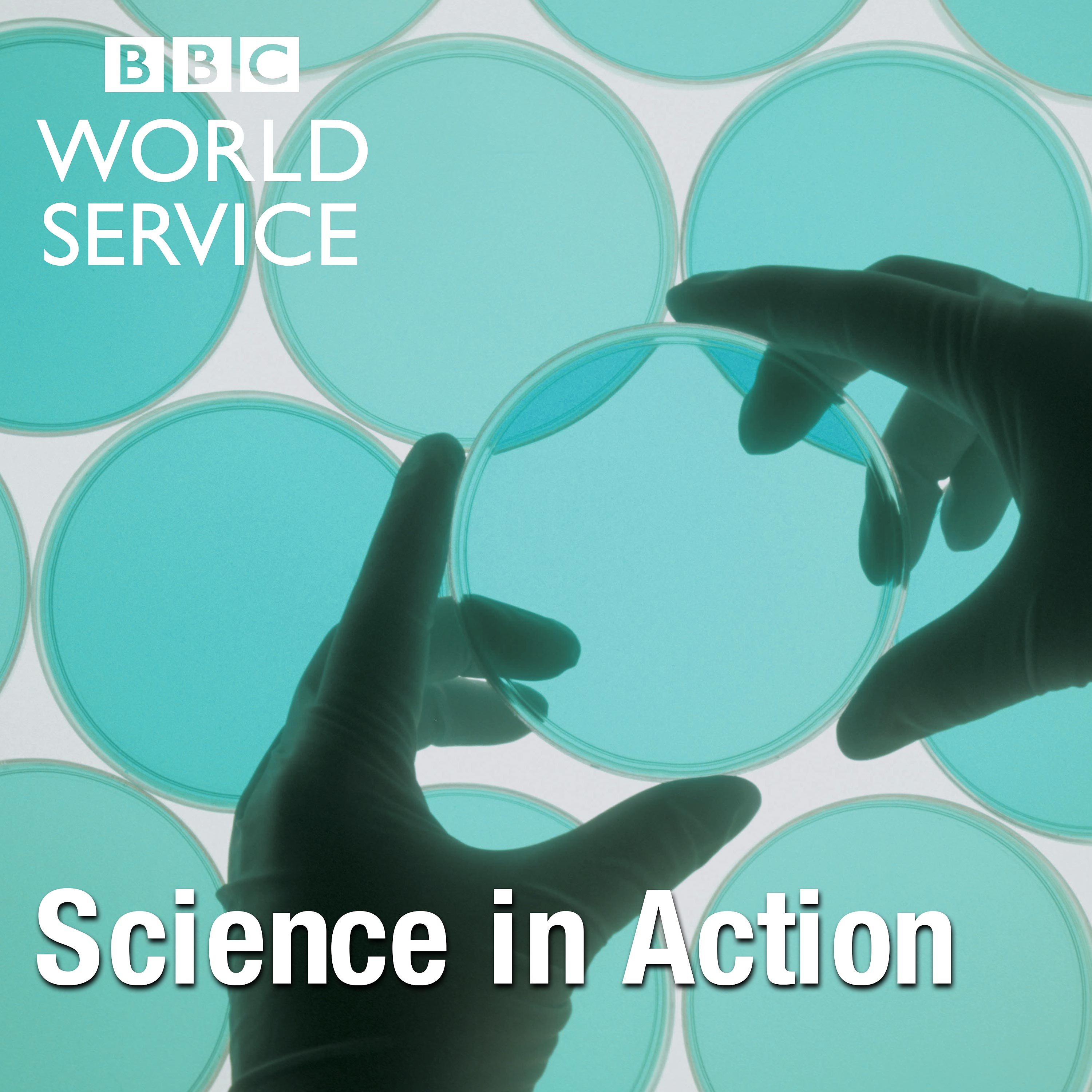

Science In Action
BBC World Service
The BBC brings you all the week's science news.
Episodes
Mentioned books

Oct 30, 2025 • 32min
How science got here, and where next
Join climate scientist Michael Mann, historian Naomi Oreskes, virologist Angie Rasmussen, and public health leader Deb Houry as they dive into the current challenges in science and public health. Mann discusses attacks on climate research fueled by fossil-fuel interests. Oreskes highlights the erosion of trust in government and science. Rasmussen exposes disinformation tactics that undermine public health messaging. Houry shares her insights on the politicization within the CDC. Together, they unravel the intricate dance between evidence, trust, and misinformation.

Oct 23, 2025 • 38min
Coral extinctions and chalky unknowns
Ross Cumming, a marine biologist, discusses the devastating impact of the 2023 Florida heatwave on coral species, highlighting the urgent need for coral restoration. Patrizio Saveri dives into the uncertainties surrounding plankton's ability to adapt to rising CO2 levels and their crucial role in ocean carbon cycles. Adam Gripper shares intriguing findings suggesting that COVID mRNA vaccines might enhance cancer immunotherapy responses. Lastly, Catherine Nakalembe innovatively explains her ground-truthing methods using GoPros for precise crop mapping in East Africa.

11 snips
Oct 16, 2025 • 39min
Paris agreement impacts and drought realities
Freddie Otto, a climate scientist at World Weather Attribution, discusses the Paris Agreement's impact on extreme heat and its links to mortality. He emphasizes the urgent need for stronger commitments to combat rising temperatures. Mendy Smith, an ecologist from the International Drought Experiment, reveals the long-term impacts of droughts on grasslands and the difficulty of recovery. Natalie Stroeymeyt, a behavioral ecologist, shares fascinating insights into how ants redesign their nests to prevent disease spread, showcasing nature's innovative solutions.

Oct 9, 2025 • 32min
Old faces and big spaces in small places
This week, predictions for the 2025 Nobel prizes are up for discussion, with insights on metal-organic frameworks and their impact on technology. A groundbreaking Human Disease Blood Atlas is in the works, showcasing how machine learning can detect cancer through protein signatures. Plus, tantalizing updates on Enceladus reveal potential for life as scientists analyze icy plumes containing complex organics. Join the exploration of tracking wildlife globally and the implications of these technological advancements for understanding health and migration!

15 snips
Oct 2, 2025 • 36min
A mystery satellite has been jamming GPS in Europe
Todd Humphreys, a space radio communications expert, reveals the intriguing possibility of a mysterious satellite disrupting GPS signals in Europe, suggesting an accidental source, not necessarily malevolent. Liana Zanette, a behavioral ecologist, shares eye-opening findings about wolves' fear of humans, showcasing how their behavior shifts in response to human sounds. Meanwhile, Tessa Alexanian discusses AI-designed DNA's potential dangers, emphasizing biosecurity challenges in detecting harmful protein sequences, highlighting an urgent need for better screening methods.

5 snips
Sep 25, 2025 • 36min
Autism and the epigenetics of early brain development
Jonathan Mill, an epigeneticist from the University of Exeter, discusses how epigenetic changes influence brain development and their complex ties to autism. Samia Iqbal, an evolutionary biologist, reveals insights from historic bacterial samples that show how antibiotic resistance evolved and spread. Gabriela Bishop from Wageningen University shares vital research on balancing agricultural land with natural habitats to protect pollinators, emphasizing specific habitat needs for different species.

Sep 18, 2025 • 26min
Stephen Hawking gets it right again
Join gravitational-wave researcher Alberto Vecchio from Birmingham University as he discusses a groundbreaking LIGO detection, confirming Hawking's area theorem with the merging of two black holes. Vecchio highlights how this elegant math has withstood rigorous testing. The podcast also explores an ambitious ESA plan to catch a pristine comet on its first visit to the inner solar system, supported by insights from Colin Snodgrass and Meg Schwamb about upcoming space missions. Discover the future of cosmic exploration and its exciting possibilities!

Sep 11, 2025 • 26min
Asteroids, comets and where to find them
Discover the thrilling plans for the interstellar comet 3I/Atlas and an exciting rendezvous with asteroid Apophis in 2029. Explore the unique characteristics of the small asteroid Donald Johansson from NASA's Lucy mission, and delve into the captivating dynamics of a merging asteroid. Join discussions on diverse spacecraft strategies for capturing cometary data and the implications of these celestial wonders. This podcast reveals the collaborative efforts and scientific significance behind exploring our cosmic neighborhood.

Sep 4, 2025 • 28min
Why is Afghanistan so vulnerable to earthquakes?
Andrew Dessler, a climate scientist from Texas A&M University, discusses Afghanistan's vulnerability to earthquakes and the urgent need for better infrastructure and public education. Alongside Anne Churchland from UCLA, they delve into how brain activity informs decision-making, using groundbreaking research on neural connections in mice. Dessler also challenges misconceptions about carbon dioxide's effects on plant growth, linking climate change to food security. Additionally, listeners learn about the latest interstellar comet discoveries and their implications for astronomical research.

4 snips
Aug 28, 2025 • 37min
How Fear Spreads
Join asteroid specialist Sarah Russell, who studies interstellar dust, paleo geneticist Ludovic Orlando, who researches horse domestication, and epidemiologist Katerina Laporta, who examines historical rumor spread. They discuss the fascinating parallels between the spread of fear during the French Revolution and modern-day events, revealing how citizen militias shaped revolutionary ideas. Furthermore, uncover the genetic evolution of horses and the cosmic origins of asteroids like Bennu, highlighting the connection between our ancient past and current scientific endeavors.


